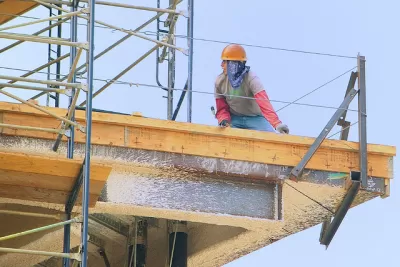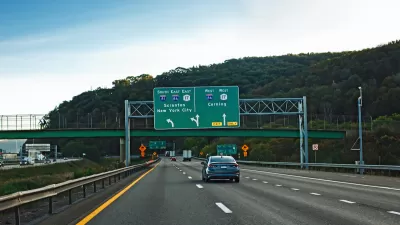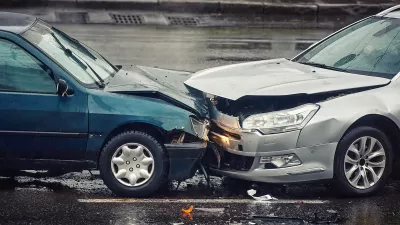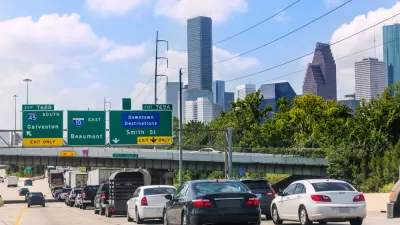A new book argues that accidental deaths, from car crashes to industrial accidents, are a result of a 'rapacious' capitalist system that prioritizes profits over people.

Streetsblog published an excerpt from Jessie Singer's There Are No Accidents: The Deadly Rise of Injury and Disaster — Who Profits and Who Pays the Price, a new book that "surveys 'accidents' arising from industries as diverse as energy, poultry, automobiles and pharmaceuticals to argue that the disasters we’ve come to accept as inevitable are, in fact, preventable — and that they stem from a rapacious capitalism that has distorted our politics because it values profits over people’s lives." According to Singer, "Accidents happen in America, and happen here at outsize rates compared to our peer countries around the globe, because everything in America is built with a mind toward profit and thrift, and on a foundation of white supremacy, a culture of punishment, and a myth of self-reliance."
From the book:
The solution is simple: Stop punishing mistakes and pretending that people are perfectible. Trade in the bootstraps parable for an acceptance that people need tools and resources to survive, and an insistence that society should provide them. Apply a harm-reduction model to every corner of the built environment. Construct workplaces, roads, and homes, but also laws and policies, with a focus on reducing accident-related damage, cushioning the blow of everything, and protecting life, health, and dignity at any and all cost. Remember that the people who die most often by accident are often the most vulnerable — the youngest and the oldest, the most discriminated against and least wealthy — and start there.
FULL STORY: EXCERPT: There are No ‘Accidents’ — We Have Been Fooled into Thinking There Are

Planetizen Federal Action Tracker
A weekly monitor of how Trump’s orders and actions are impacting planners and planning in America.

Map: Where Senate Republicans Want to Sell Your Public Lands
For public land advocates, the Senate Republicans’ proposal to sell millions of acres of public land in the West is “the biggest fight of their careers.”

Restaurant Patios Were a Pandemic Win — Why Were They so Hard to Keep?
Social distancing requirements and changes in travel patterns prompted cities to pilot new uses for street and sidewalk space. Then it got complicated.

Platform Pilsner: Vancouver Transit Agency Releases... a Beer?
TransLink will receive a portion of every sale of the four-pack.

Toronto Weighs Cheaper Transit, Parking Hikes for Major Events
Special event rates would take effect during large festivals, sports games and concerts to ‘discourage driving, manage congestion and free up space for transit.”

Berlin to Consider Car-Free Zone Larger Than Manhattan
The area bound by the 22-mile Ringbahn would still allow 12 uses of a private automobile per year per person, and several other exemptions.
Urban Design for Planners 1: Software Tools
This six-course series explores essential urban design concepts using open source software and equips planners with the tools they need to participate fully in the urban design process.
Planning for Universal Design
Learn the tools for implementing Universal Design in planning regulations.
Heyer Gruel & Associates PA
JM Goldson LLC
Custer County Colorado
City of Camden Redevelopment Agency
City of Astoria
Transportation Research & Education Center (TREC) at Portland State University
Camden Redevelopment Agency
City of Claremont
Municipality of Princeton (NJ)





























